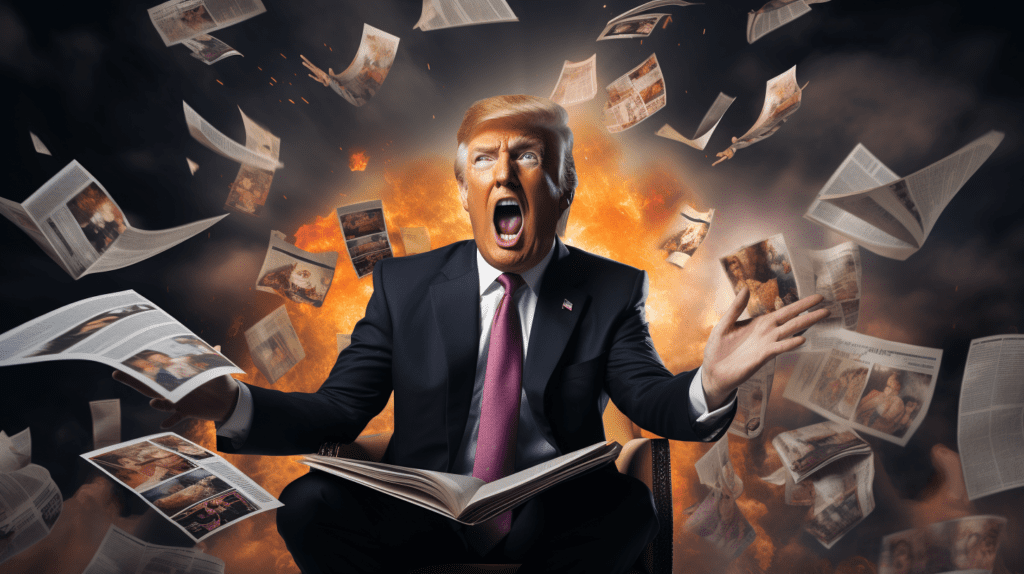The term “alternative facts” gained widespread attention on January 22, 2017, when Kellyanne Conway, then-Counselor to President Donald Trump, used it during a “Meet the Press” interview. Conway was defending White House Press Secretary Sean Spicer’s false statements about the attendance numbers at Trump’s presidential inauguration the day before.
When challenged by the interviewer, who cited several facts indicating a much smaller crowd size relative to President Obama‘s inauguration, Conway asserted that Spicer was offering “alternative facts” to the media reports, which suggested a lower attendance compared to previous inaugurations.

Philosophical and Historical Context
The term, while new in its specific phrasing, taps into a long-standing philosophical debate about truth and reality. Historically, the idea that there can be different interpretations of facts has roots in relativism and constructivism.
However, the way “alternative facts” was used implied a more radical departure from the accepted notion of objective facts, tilting towards a post-truth era where the line between truth and falsehood becomes blurred. It indicated an intentional strategy of disseminating disinformation early on in the Trump administration, and articulated it out loud in a way that previous presidents had never done before.
Use in US politics
The use of “alternative facts” in US politics has been controversial and highly debated. Proponents argue that the term simply reflects different perspectives and interpretations of events. Critics, however, see it as an attempt to legitimize falsehoods or misleading information, particularly when used by those in power to contradict evidence and well-established facts.
The term quickly became symbolic of the Trump administration’s relationship with the media and its approach to information dissemination. It was seen as part of a broader strategy that involved discrediting mainstream media as so-called “fake news,” promoting favorable narratives, and challenging the notion of objective truth. It extended the already prevalent right-wing strategy of science denialism into a kind of denialism of reality itself — a dangerous path towards authoritarianism reminiscent of the use of Newspeak in George Orwell’s famous classic dystopian novel, 1984.

Implications for American democracy
The implications of the widespread use of “alternative facts” for American democracy are profound and multifaceted:
- Erosion of Trust: The concept challenges the role of a free press and fact-checking institutions in democracy. When official statements are at odds with verifiable evidence, it erodes public trust in both the government and the media.
- Polarization: It exacerbates political polarization. When people cannot agree on basic facts, finding common ground becomes challenging, leading to a more divided society.
- Manipulation and Propaganda: The term can be weaponized for political ends, allowing for manipulation of public opinion and spreading propaganda.
- Accountability and Governance: In a democracy, accountability is key. If leaders are seen to use “alternative facts” without consequence, it undermines democratic governance and the expectation that leaders are truthful and transparent.
- Public Discourse and Decision Making: Accurate information is crucial for informed decision making by the electorate. When false information is disseminated under the guise of “alternative facts,” it impairs the public’s ability to make informed decisions.
- Legal and Ethical Concerns: The concept raises ethical concerns about honesty and integrity in public office and can complicate legal proceedings when factual accuracy is disputed.
The dangers of “reality denial”alternative facts” in political discourse
“Alternative facts,” as a term and a concept, represents more than just a linguistic novelty; it signifies a shift in the landscape of political discourse and the relationship between truth, power, and democracy. Its emergence and use reflect deeper tensions in society about trust, media, and the nature of reality itself. For American democracy, grappling with the implications of this term is not just an intellectual exercise but a necessary endeavor to preserve the integrity of our democratic institutions and public discourse.
It’s one thing to have legitimately different perspectives on the issues. It’s quite another to throw out the founding ideals and Enlightenment principles of rational inquiry, scientific observation, and reality testing altogether. If we cannot agree even on the basic facts of a situation, the ability to arrive at any kind of policy consensus about what to do to solve issues and problems in society that will always occur is deeply impaired — and indeed, our democracy is placed in great peril.
We must recommit fully to the finding of Actual Facts — and put behind us the childish nursing of our favored Alternative Facts.
Comments are closed.